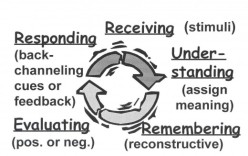The normal linear sequence for most of us in support roles is either:
- Individual comes to us seeking advice, we clarify context, discuss alternatives and timeframes and seek commitment to execute, with follow-up action to track to close out
- We notice a data point or trend and seek to rectify through either upstream or downstream actions to prevent a repeat event.
Pretty standard yeah? Yet what if there were other plays you could run? What if you didn’t have to advise or indeed the individual coming to you didn’t want your advice. What if they wanted a space and person to work it out on their own?
An acting Construction Manager came to me with a scenario which was a no brainer. A subcontractor had mobilised to site far too soon without the necessary supply chain set up for the Project or personnel in key positions which were 1-2 levels above their past positions. This caused early schedule pressure to create an environment where reactive was the norm and opening work fronts (rather than planning for future issues & closing identified hazards) was the driver. We had drawn a line in the sand for all identified issues to be closed out by a date which the Subcontractor acknowledged was achievable and would be done. The site manager and construction manager then left site for the weekend leaving accountability for the follow thru resting with the acting Construction Manager.
The day came and we knew that unfortunately resources weren’t used to close out the identified issues. He came into my office and sat down and didn’t say anything. We both knew what the course of action had to be and what it entails. We didn’t talk about notifying the commercial department suspension of works, the phone calls to the client, the impact to mining operations, how our decisions would be perceived by the Subcontractor’s personnel and our own. He didn’t ask, I didn’t tell. He wasn’t seeking advice, he was seeking connection.
He didn’t ask, I didn’t tell. He wasn’t seeking advice, he was seeking connection.
 Often in support roles, we get caught up as ‘tellers’ regarding what should happen or what needs to be improved. It has become almost synonymous with ‘advising’. I’d challenge you to think critically about what an advising someone else actually is and what you are looking for in the relationship.
Often in support roles, we get caught up as ‘tellers’ regarding what should happen or what needs to be improved. It has become almost synonymous with ‘advising’. I’d challenge you to think critically about what an advising someone else actually is and what you are looking for in the relationship.
 Too often I’ve seen (or done myself) Safety personnel take the role of ‘parent’ and attempt to force the other party into a child-like position (through invoking either fear, perceived moral superiority or future guilt) where they should listen and do, as the advisor has more knowledge. This strategy is a self-fulfilling prophecy which typically leads to conflict, as individuals don’t meet as trusted peers but rather as transactional colleagues, without a need for a mutually beneficial outcome and ongoing relationship.
Too often I’ve seen (or done myself) Safety personnel take the role of ‘parent’ and attempt to force the other party into a child-like position (through invoking either fear, perceived moral superiority or future guilt) where they should listen and do, as the advisor has more knowledge. This strategy is a self-fulfilling prophecy which typically leads to conflict, as individuals don’t meet as trusted peers but rather as transactional colleagues, without a need for a mutually beneficial outcome and ongoing relationship.
So don’t always assume that when people come to you they need your ‘advice’. If you are like me the hardest thing to do is not add value to a discussion or charge off to do the first, best idea that comes out of the discussion. Stay in tension for better quality hunches (as I have reflected on here) and don’t always feel the need to add value. It cheapens others thoughts and transfers the origin of the idea from them to you, decreasing their commitment and autonomy to executing the idea.
By the way, the acting Construction Manager and I used the suspension of work to assist the SubContractor to align on our expectations about what we verbally said we expected, and matching this with action that we were willing to take. This often is misunderstood and post this action we built a lot stronger relationship with the site management team